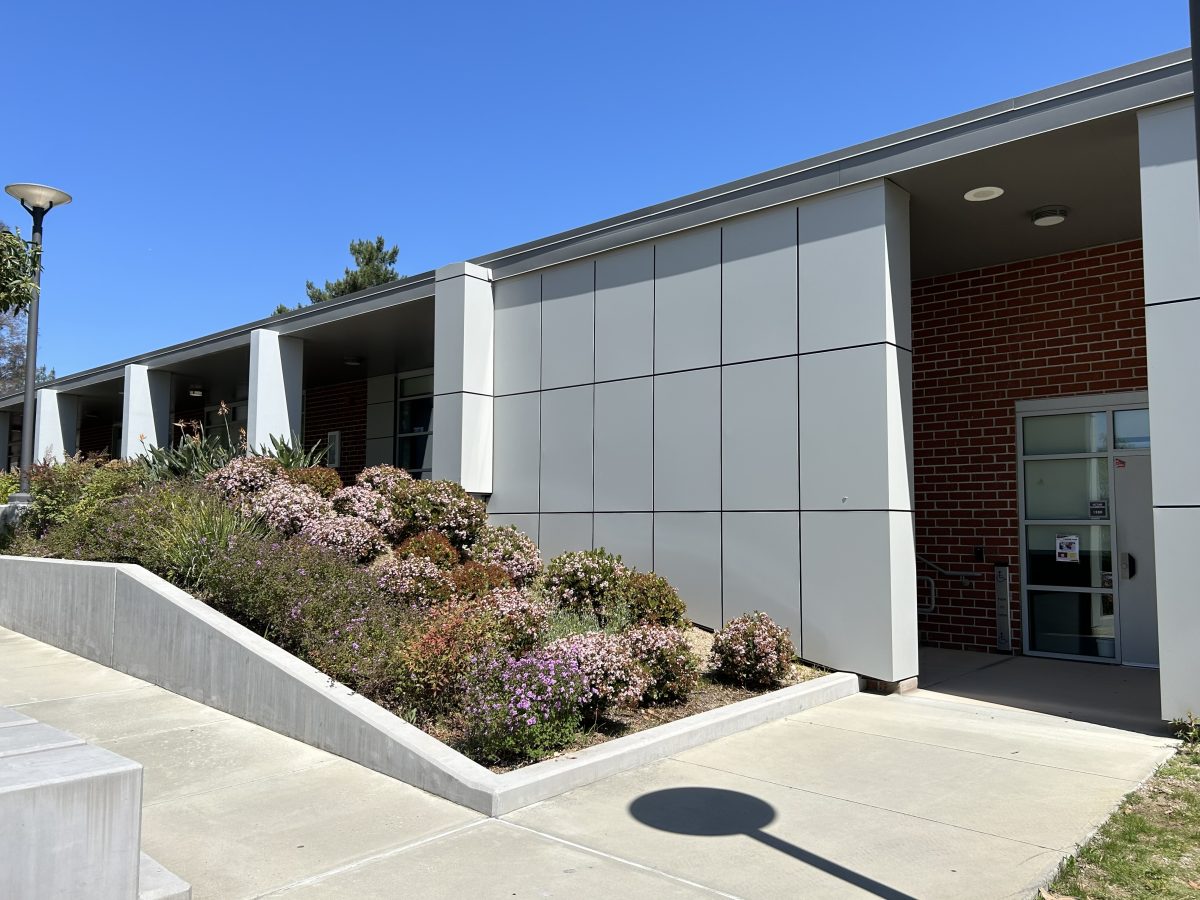This story was updated at 2:48 on May 3 to attribute the closing paragraph.
On Monday, April 29, Mt. SAC held an emergency Campus Safety Forum in building 12-1180 in light of the recent indecent exposure incident and several other reported and unreported sexual related crimes happening near the performing arts buildings.
The forum did not begin until 9 a.m. to accommodate Acting Chief of Police Veronica Saucedo, Campus Police Sergeants Brian Owen and Rafael Ixco to attend.
Other notable faculty who were present at the meeting included:
- Dean of Arts Michelle Sampat, who served as the forum’s moderator,
- Vice President of Administrative Services Shannon Carter
- Chair of the Theater Department Christine Cummings
- Chair of the Music Department Karen Marston
- Professor Susan Boulanger, the professor who intervened to assist the four students involved in the indecent exposure
- Associate Dean of Arts John Vitullo.
Before Saucedo, Owen and Ixco arrived, Arts Dean Sampat and VP Carter held a preemptive questions segment to allow audience members to come up with and ask questions for Campus Safety and Police officers who would be attending. Sampat was emphasized that this meeting served as an opportunity for attendees to share their stories and ask questions without fear of judgment.
After the preliminary questions and concerns were addressed, Sampat opened the floor to the audience to ask Chief Saucedo and Sergeants Owen and Ixco questions not only about the April 17 indecent exposure incident but other campus safety concerns as well.
Music Chair Marston began by revealing on Sunday, March 3, there had been another incident where a male exposed himself to a guest who was rehearsing for a production at Mt. SAC. The guest had informed Marston who then called campus safety, but no information or incident reports had been made.
Saucedo said she had not received any information regarding the March 3 incident and that this was the first time she had heard of the incident occurring.
When the April 17 incident was broached and audience members asked about the lack of action and late response time, Saucedo noted four key problems with SAC’s response time, including information gaps and inability to detain or intervene further. The four key flaws and general problems Saucedo highlighted were the following:
- Understaffed dispatchers who respond to 555 calls and pass information down to Campus Safety and Police. SAC only has one dispatcher and they operate on typical Mon-Fri business hours from 9-5 p.m.
- Several known and unknown service dead spots. The school is still determining where the primary dead spots are on campus.
- Many of the new campus security guards are on campus to “observe and report” not to “self-initiate” or intervene. Although students and faculty can perform a citizen’s arrest, they would need a sworn officer to arrest any suspect.
- Mt. SAC’s infrastructure is not equipped with the necessary communication equipment in their call center nor the ability to detain individuals suspected of committing a crime
Professor Boulanger pointed out that if the school’s security is understaffed, dispatchers should be held accountable for the critical information not being passed down.
“The information was there,” Boulanger said. “It was given to you. I’m not just blowing smoke, but it would seem to me like if a faculty member is calling multiple times, this [call] would be a priority.”
She added that she felt like campus security does not consider the arts building as a priority.

Saucedo acknowledged the shortcoming and proposed that additional training be added for the “observe and report” security to be able to self-initiate and intervene when needed. Sampat also proposed that in non-coded responses, dispatch relays information to the department deans to handle certain matters when patrols are on-call or not present.
Sergeant Ixco clarified that there were four calls for campus security including a possible hit-and-run and potential fire hazard that he was answering at the time. Ixco also noted that the dispatch had only notified him that the suspect involved in the incident was “drinking a beer and belligerent.” No reports of an open tequila bottle, the suspect smoking marijuana on campus or verbal threats or sexual remarks said toward the students were relayed to him.
Ixco said he believed he could’ve handled both responses on his own so he didn’t send another officer to respond to Maria Tinoco, one of the students who stepped in to help the harassed student and found Ixco on her own.. If the information had been relayed to him from dispatch, Ixco said he would have left the reported fire hazard call and followed Tinoco to respond to their safety calls.
In regards to why a campus-wide alert was not sent until the next day, Saucedo clarified they didn’t have any information of the indecent exposure until the next day when the witnesses gave their statements. The criteria for how quickly an incident is broadcasted campus wide is based on the dispatch and Mt. SAC’s marketing team receives the information on the crime reported and how imminent the threat or incident may be. In ideal circumstances, an accurate crime report would take two hours to craft and send out according to Saucedo.
Theater Chair Cummings also called out the tone and verbiage the officers use when it comes to crimes of this nature. She said that asking the questions of “are you sure he did it” and “did you see him do it” create a sense of doubt toward the victims’ experiences. Cummings wanted campus police to have a better approach.
As the meeting came to a close, several students suggested and commented on possible changes and solutions. One brought up a possible hybrid approach where SAC works in collaboration with neighboring police or sheriffs departments.
One student, Lauren Hand proposed reviving the volunteer escort service where students who request the service can be walked to their destination on campus. Carter responded that the school would be bringing back the service during the upcoming fall semester.
The audience left the meeting feeling the responses were repetitive and that they were back to asking the same questions when the stabbing incident occurred – what can students do in instances like this to further protect themselves and what will the school do immediately to prevent these incidents from happening.
Although students like Tinoco were thankful campus police officers were there to listen and answer the audience’s questions, they felt a majority of their answers were repetitive and came back to insufficient staff or funds. “They kept repeating that their systems had faults and that they have lack of security staff, which we already knew and understood,” Tinoco said. “I was hoping they’d mention what they as individuals could do with the resources they had, mostly about their timing and preventing future problems until they have the adequate resources.”
Tinoco said they were also taken aback by the lack of information that security had received. “I’m sorry about my language, but it’s bullshit … maybe security is tired about hearing this whole situation since it’s getting repetitive for them, but every time we explain what happened, we aren’t leaving out anything.”
Some students in attendance who wished to remain anonymous were adamant that though meetings like this are critical, the administration’s words don’t hold much merit if they do not do something about it aside from holding meetings and they needed some serious investment into safety plans.



